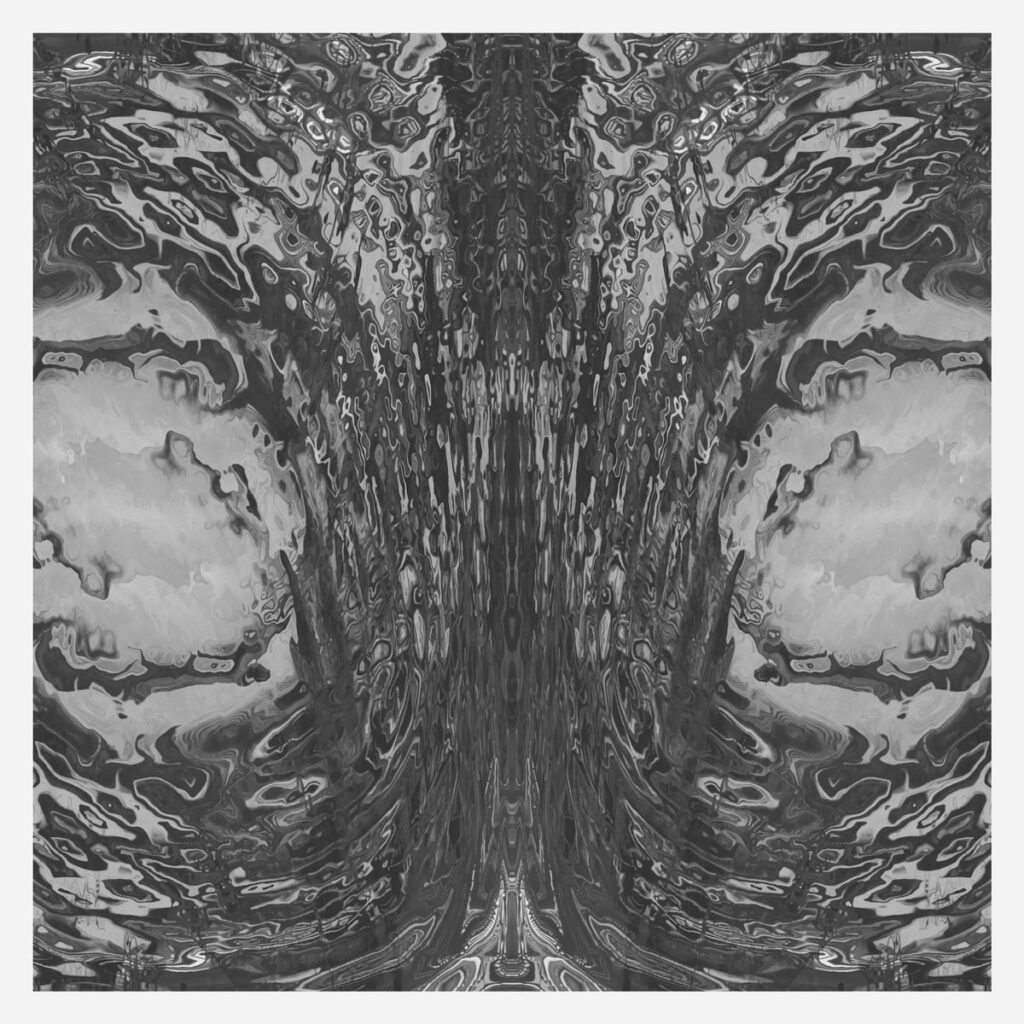The duo of AJ Cookson and Matthew Rozeik have been steadily firing out recordings since 2009, consistently wobbling between different shades of synth-driven darkness reflected in the unholy trinity of words for death that is their name. To date they’ve had a pretty open door policy to music making, marbling rugged beats, doom drone guitars, and the odd guttural scream into a propulsive blend of horror movie synth scores and industrial squall. Always prolific, 2014-2015 saw the duo producing at especially high speed, putting out untitled albums Volumes 1, 2, & 2.5, plus EP1, EP2, & EP3, as well as their most beat-heavy trip to date Martian Cartography, sounding somewhere between a NIN remix album and some late-90s Warp records acid house. The tough-to-predict band is an increasingly common 21st century phenomenon, but even by those standards these two are erratic. One minute they’re remaking Wendy Carlos and the theme from Look Around You, the next they’re giving Khanate a run for their money with a cavern of riffs and screams. The ante’s seemingly been upped now though, the duo now signed to the mighty Rocket Recordings alongside the likes of Goat, Hey Colossus, and Gnod, but Necro Deathmort have earnt their keep and then some with The Capsule.
Despite the penchant for genre-jumping, the core of Necro Deathmort’s music – synth pulsations, an ultra-pro sheen, and a bottomless pit of darkness – has been steadfast. The eight (mostly) instrumental tracks on The Capsule focus in on these key facets with brutal efficiency, eradicating those crushing guitars and pockets of light that occasionally made their way into the preceding dozen records by the duo. The beats are almost entirely absent too, save a few minutes of deftly chosen energy in the album’s first half, drifting along icy glaciers of synthesized pads and arpeggios. Synthetic scores of the 70s and 80s naturally spring to mind – Fabio Frizzi’s Zombie themes, Tangerine Dream’s Sorcerer, Ennio Morricone’s The Thing, and of course everything John Carpenter ever touched – but modern descendents of narrative synth music are perhaps even closer cousins. Cliff Martinez’s various scores (particularly the demonic core of 2013’s Only God Forgives), or Brian Reitzell’s music for video game Watch Dogs are cut from the same learned cloth as The Capsule, embracing potentially kitsch synthetic sounds with several extra decades of maturity and a vital 21st century sheen.
This brand of brooding synth instrumental has been so long entangled with narratives, it’s perhaps the ultimate test to make it work without without any framing context; to inject enough substance into the music for it to carry itself. Jean-Michel Jarre managed it, Tangerine Dream (sometimes) managed it, and with The Capsule so have Necro Deathmort.
The album’s first half is decidedly more banging than the second, in particular palate-cleansing opening track ‘In Waves’, which bursts into a locked motorik beat that cycles on as the keys gather together. A feedbacking guitar cries out in the distance atonally, and the piece barely reaches a crescendo before dissipating. ‘First Rays’ is where the drama of the record really begins, much more gradually weaving together bubbling arpeggios and howling synthesizer winds for minutes at a stretch. ‘Moonstar’ follows in a similar vein, but reaches a more pained peak, with angst ridden screams buried beneath an urgently heightened bleeps. It’s perhaps the track where the album’s sense of dread is most fully realised. As an exercise in minimalism, or perhaps even a showcase in the musical strengths of knob twiddling, the next track (‘Capsule Sickness’) is the album’s most satisfying moment. Comprising little more than a simple repeated arpeggio and a hazy pad, the duo open and close envelopes, fiddle with settings at key moments, and layer on extra doses of effects, recrafting the simplest of figures into a powerful wash that grinds through the listener like a pestle.
The album’s second half feels distinctly colder and calmer, veering into near-ambient territory at times. ‘Crux’ showcases some wintery bleeps that comes straight from the sonic arsenal deployed by Autechre in the mid-90s, and the closing triptych of ‘Mono/Serum’, ‘Pecklyn’, and ‘Screens’ seem resigned to dark beatless brooding, as if the band from the album’s first half had been exiled. It’s a gentle finale, but prickles those hairs on the back of your neck like nothing the duo have done before.
The title of The Capsule is far more appropriate than first appears. It reflects the album’s trippy flow, as if taking the red pill to see just how deep the rabbit hole goes (in the closing half it goes far deeper than you imagined). It could also refer the album’s self-containment and status as a score without a subject. A space capsule drifting through a vacuum, gradually running on fumes and facing down the void alone.


